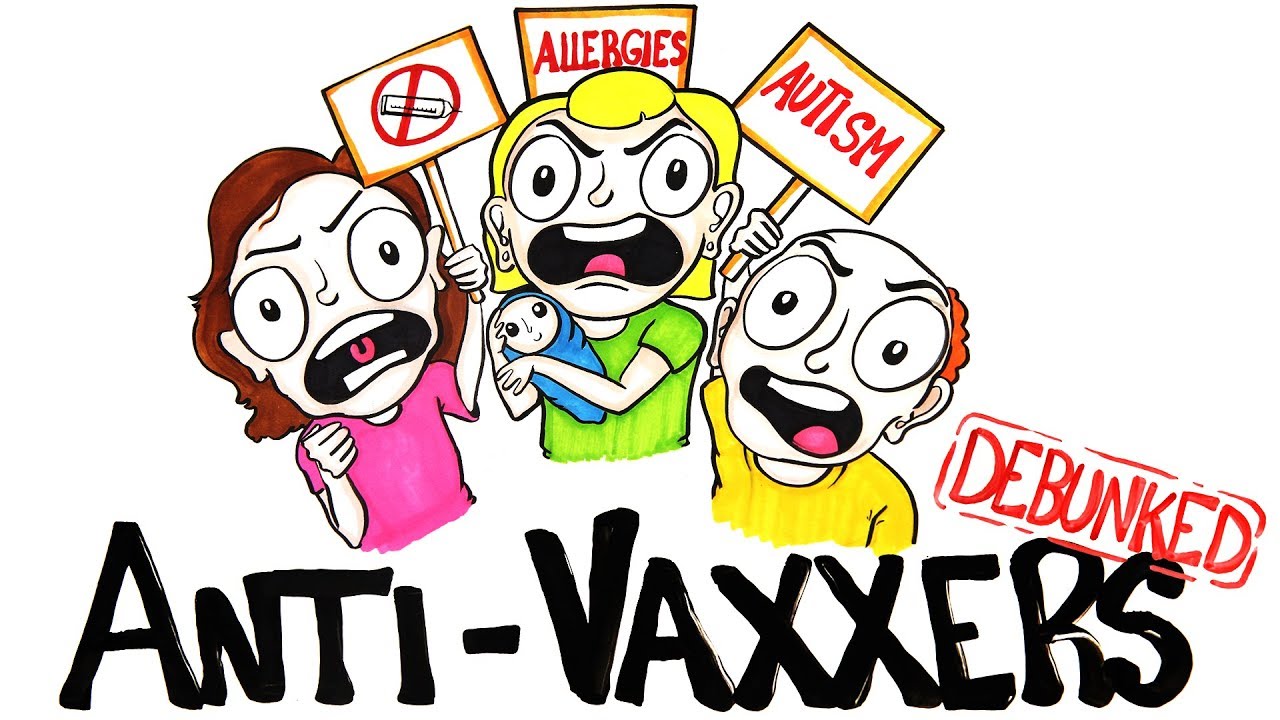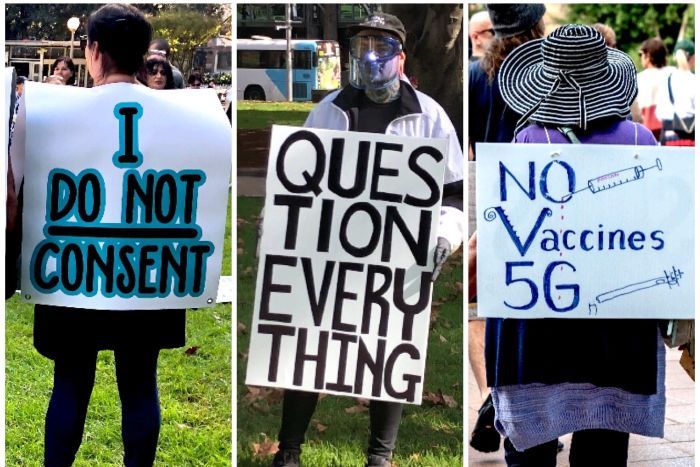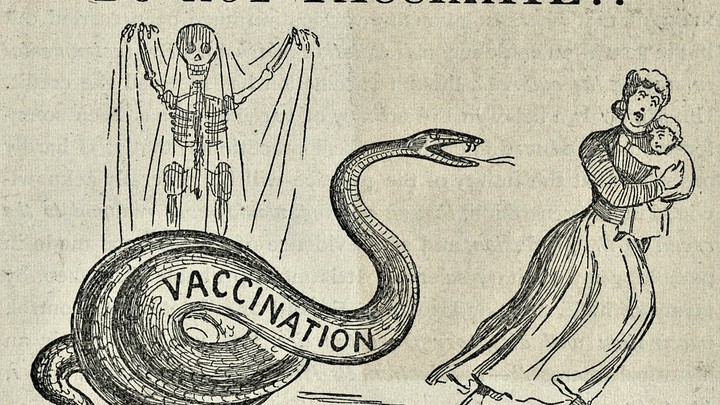RIO DE JANEIRO, BRAZIL – “How are anti-vaxxers doing now?” jokingly wondered host and comedian Pablo Motos on his Spanish TV show a few weeks ago. Since the pandemic erupted, jokes have multiplied about this group suspicious of needles.
It was assumed that they would be in hiding or would have been forced to change their minds, due to a global health crisis that can only be solved with immunization. But knowing a little about the thinking of this group of unyielding activists is enough to know that reality is quite different.

Anti-vaxxers are not silent, but rather mobilized, as was the case in all earlier health crises. The zika, the influenza A and now the coronavirus are events that include the factors supporting their beliefs and help promote them, as paradoxical as it may seem. The current pandemic is the perfect storm with all the components of a battle for which they have spent decades preparing.
Uncertainty fuels paranoid thinking, and these groups are experts at adding fuel to the fire. They have worked well on the Internet ‘infoxication’ manual and for months have been sowing doubts and conspiracies. “My short answer is that anti-vaxxers will grow,” cautions sociologist Josep Lobera, “although I think we’re in time to do things right”.
As the anti-vaxxers jokes spread on Twitter, they spread fabricated stories, such as: a British woman who died after volunteering to test an experimental vaccine; that everything had been orchestrated by Bill Gates; that it was possible to get a false “natural immunity”; and that seven children had died in Senegal in the first mass immunization campaign. By the time the real vaccine reaches pharmacies, these groups will have had time for their lies and half-truths to become a matter of public fear and distrust.
“We are in time to do things right, but now it is more difficult than in a regular situation, and this leads me to think that we will see the anti-vaxxers movements grow. As soon as we have the vaccine, there will be stronger campaigns with greater repercussions,” says Lobera. This sociologist from the Autonomous University of Madrid has just published a study that associates the anti-vaccine trend in Spain with distrust of conventional medicine.
The World Health Organization (W.H.O.) already considered rejection to immunization as one of the major health threats in 2019, when the number of measles cases tripled compared to the preceding year. Now, the problem could even endanger the longed-for herd immunity against the coronavirus, which, according to the most accepted estimates, is achieved when some 70 percent of the population have antibodies.
According to a study published in The Lancet magazine, 26 percent of the French would not be immunized if the vaccine were already available. In the United Kingdom, 12 percent would not be immunized, and more than 18 percent would try to persuade family and friends against immunization, according to a University of Cambridge study.
A quarter of the US population is not interested in vaccination against Covid-19, according to Reuters, a rejection that reaches 34 percent among Republican voters, according to the Pew Institute survey. Only 40 percent of Americans under the age of 60 are confident they would be vaccinated, according to AP.

Not all of these millions of reluctant citizens fit the anti-vaxxer label. There is a small circle of militant activists who live it as a creed; a larger one of families who are fearful; and finally there is the general public, who may become suspicious in light of events and their personal circumstances.
Authorities must be very transparent and sincere in providing all available data on the vaccine development process, acknowledging that there is a rush, mistakes and commercial interests, says Lobera. Above all by making it clear that all of this will be controlled to achieve an excellent end product.
And it would be even better if the population could be allowed to choose between several types of vaccines. Because these already-observed concerns usually grow in the heat of distrust against the interests of pharmaceutical laboratories and governments. As essayist Eula Biss explained in her book ‘Immunity’, much of the distrust regarding the end product, the vaccine, is in fact based on what they believe manufacturers would be capable of doing to make money.
These concerns also exist in Spain, albeit to a lesser extent. So far we know that over six percent of Spaniards believe that the risks of early childhood vaccines outweigh their benefits, according to a Fecyt study conducted by Lobera.
But with the advent of the pandemic, the belief in conspiracies has multiplied, as the door has opened to let alternative ideas pass by. According to the Reuters Institute linked to Oxford University, in early April, 29 percent of Spaniards believed the virus had been developed in a laboratory, and 12 percent believed pharmaceutical companies were speculating over a vaccine that would already have been developed (and 21 percent were unsure about it), according to a study by María Victoria-Mas of the International University of Catalonia.
These conspiracies are flooding social media and Whatsapp. Last Saturday in Italy, there was a rally by the “orange vests “, a group claiming that the virus does not exist, that the vaccines are harmful and that 5G and Bill Gates are to blame for the pandemic. A recently published study shows that there is a direct and robust relationship between believing in conspiracies and refusing to be vaccinated against Covid.
“Too often, those in charge of protecting the public don’t seem to understand how information flows in the Internet age,” recently lamented Renée DiResta, a Stanford researcher who was among the first to alert to the anti-vaccine traps on social media. Health crises are fertile ground for pushing their agenda.
During the measles outbreaks that affected several parts of the US last year, anti-immunization groups were the fastest growing on social media like Facebook, as a study published last week in Nature cautions: “It’s almost as if they had been waiting for this. It consolidates everything they’ve been saying,” wrote Neil Johnson, the study’s author, about how anti-vaccine activists were exploiting the situation.

“Complaints against vaccines on the Internet are not static. They react to changing news and the development of new rhetorical techniques,” says Jonathan Berman in his recent book ‘Anti-vaxxers’ (MIT Press).
The analysis of websites opposing vaccines shows a significant evolution in the topics their arguments focus on: the mention of vaccines as causing other diseases and the promotion of alternative medicines drop, while conspiracy theories rise. While vaccine advocates continue to fight against their false link with autism, anti-vaxxers are quietly abandoning this trench to focus on narratives about freedom of choice, as DiResta explains.
“Surprisingly, although the anti-vaccination websites’ tactics adapt over time, the general messages spread fall into the same basic categories as they did in the 1850s. The issue of personal freedom, concerns about body contamination and distrust of the government and scientists are still used, more than a century and a half later,” Berman notes in his book.
We have witnessed a steady erosion of confidence in science and experts over the past decade, and even more so in recent months, which may serve as fuel to attack a future vaccination campaign.
“There is a common thread between anti-vaccine thinking and some extreme political positions, associated with the notion that the elites don’t take care of us,” says Lobera about the added risk of politically polarizing immunization campaigns.
In France, voters of Mélenchon’s left-wing and of Marine Le Pen’s right-wing are the most reluctant to be immunized against the coronavirus. This may encourage greater mobilization against the vaccine alongside ideology, as is the case in countries such as Poland and Italy.
Health authorities are concerned about the development of these events: an article published in the North American Medical Association journal warns that the stories spreading most are challenging the safety of a future vaccine, criticizing mandatory immunization as “tyrannical” and promoting conspiracy theories, such as that this vaccine will serve as a pretext to inject a microchip that monitors the population.
Some may sound like ridiculous notions, but these doctors are calling for the immediate implementation of public health campaigns to fight and prevent the spread of marginal ideas “before dangerous myths take root in the public psyche”.
“It’s not a closed story,” warns Lobera. She adds: “Whatever happens with this pandemic will hinge on how the medical, political and communication cards are played. Because there are many sensitive aspects, and one must play well with the communication aspects”.
Source: El País

